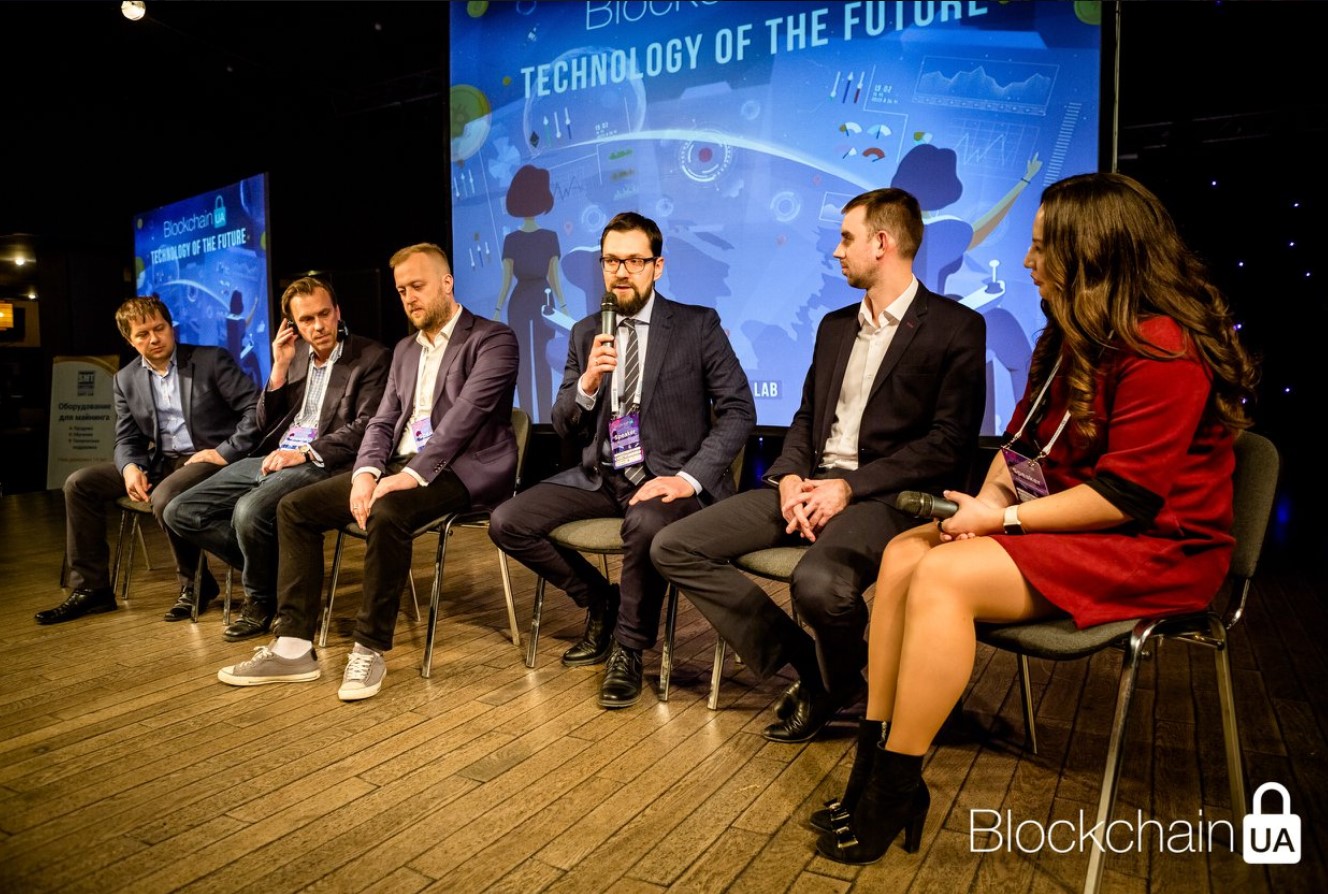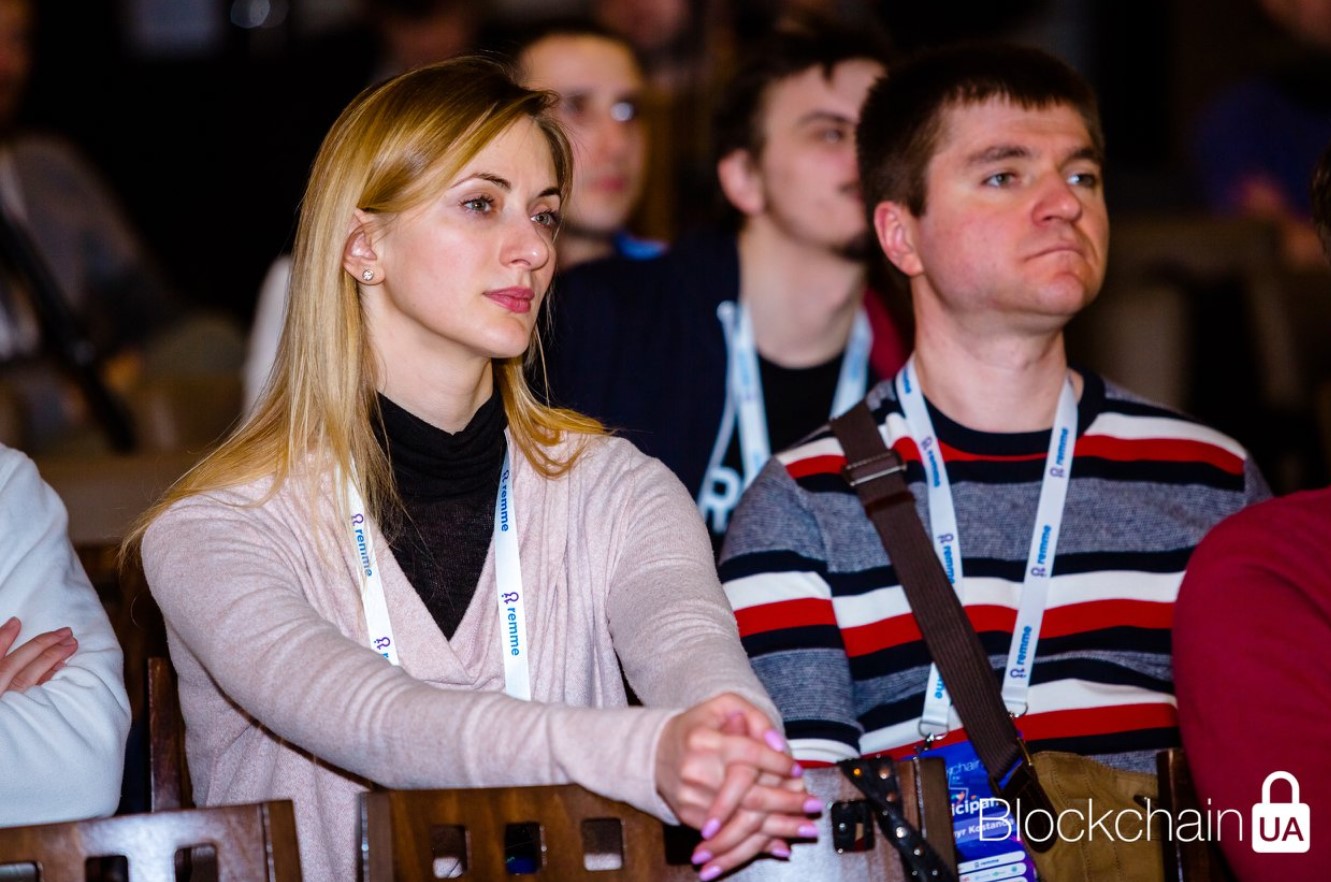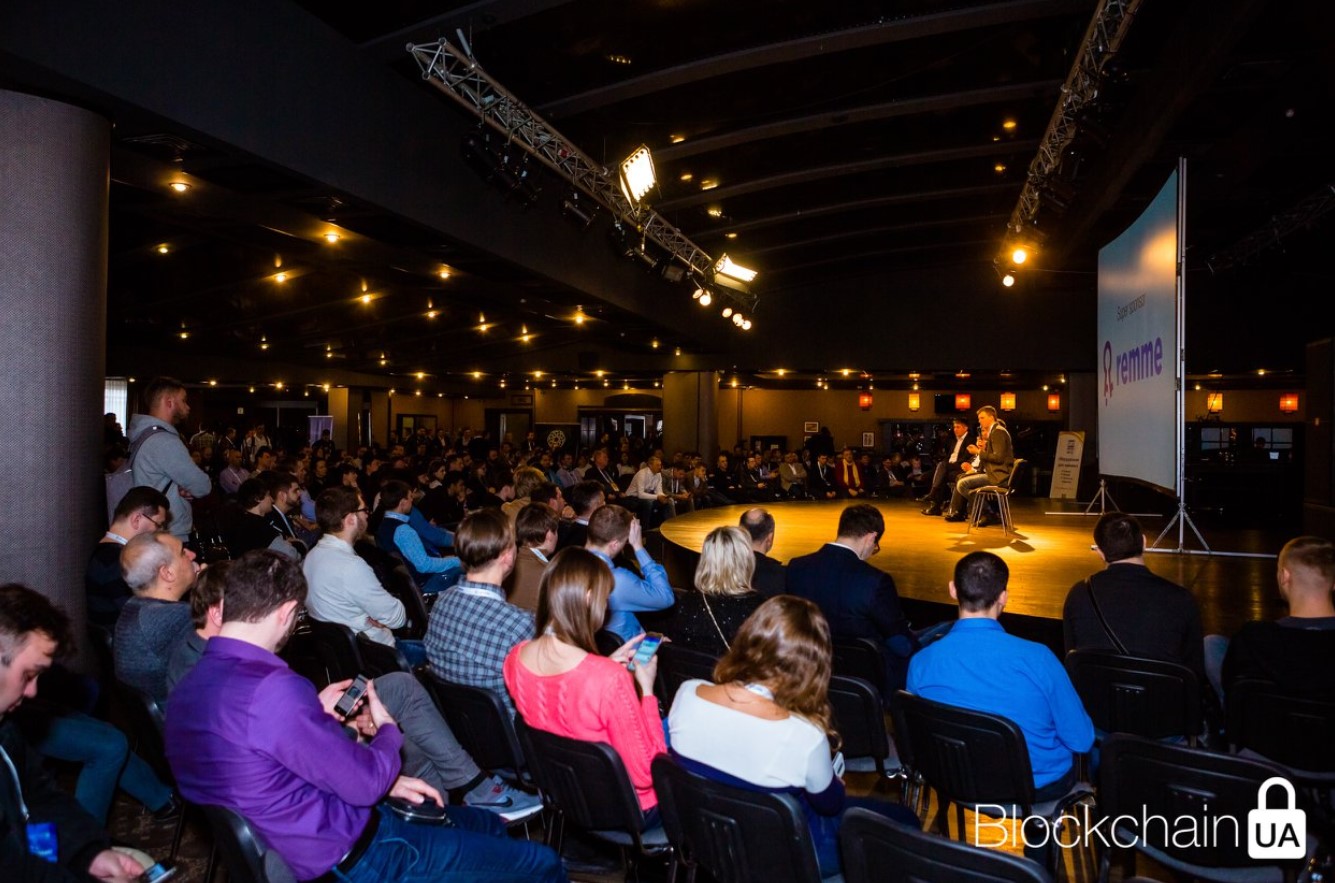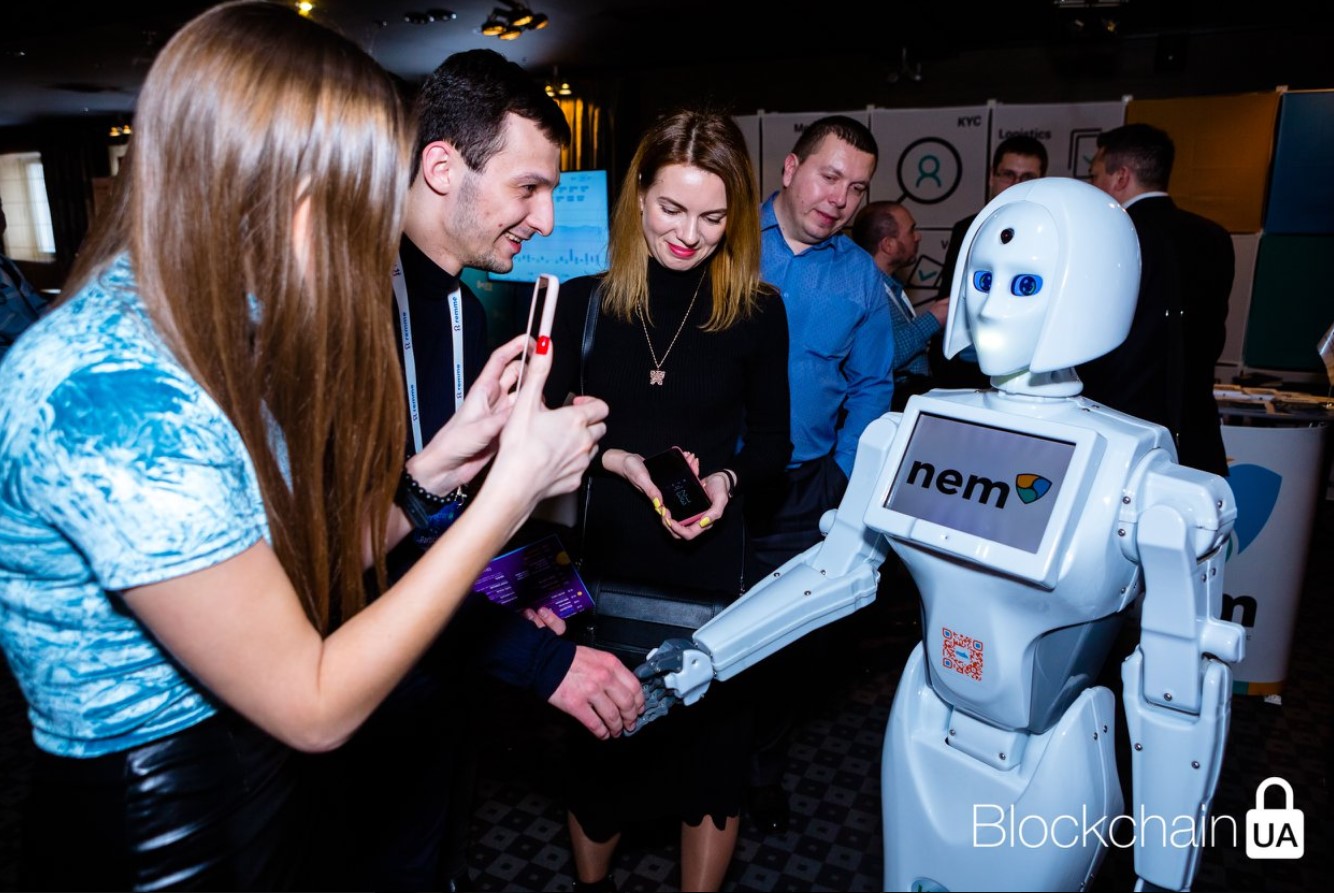BlockchainUA Fintech Conference
Previously, we told you about our visit to AWS DevDay in Kyiv, today we are going to tell you about another interesting event, blockchain-related, that we had a chance to attend. On March 23, 2018, Ukraine hosted a BlockchainUA conference on the latest developments in the blockchain technology and the hottest problems related to the blockchain, cryptocurrencies and their integration in the global economy. The conference was held in Kyiv and gathered hundreds of participants from different industries and economic sectors. Among them were blockchain and fintech experts, IT professionals, government officials, lawyers, traders, bankers, and economists.
During the meetings and panel discussions, experts presented and evaluated many innovational blockchain-based solutions. Also, they analyzed the problems related to blockchain regulation by governments and blockchain acceptance by different industries.
Adoriasoft colleagues also had a chance of visiting this conference, and we would like to share the most significant points that were discussed.
ICO and government regulations
Recently, ICOs have got into the crosshairs of many government institutions and agencies who are making constant efforts to impose regulations on them. This matter became the subject of active discussion at the conference, as government regulations may create obstacles for ICOs.
Particularly, the issue of utility tokens vs. security tokens was analyzed in the context of applying the securities regulations. The main difference between the two types is that security tokens may be regarded as company shares. While utility tokens provide access to the service or the product that a company develops. In this respect, security tokens are considered securities and thus fall under the SEC regulations.
At the same time, utility tokens, although capable of growing in value, are exempt from the securities regulations until they are explicitly described as tradable and capable of generating profit. As soon as a utility token is referred to in the context of profit gain, it is immediately subject to the SEC monitoring.
You can imagine the reverberations this novation caused in the crypto-community, and this matter was discussed at several panels. Particularly, this point was raised by Marek Zabicki, the Co-Founder and Chief Technical Officer of Arteia, in his ICO 2018 – Token Dilemma presentation, and Gordon Einstein, the Chief Legal Officer of Distributed Lab, in his Raising capital in 2018 – the fully compliant ICO speech.

What is the future of ICO geography?
The importance of this issue and of distinguishing between security tokens and utility tokens is in its influence on the possible ICO geography. When launching an ICO with a particular type of token, it is extremely important to check the legislation of the countries you are targeting.
Switzerland is considered to have the most favorable ICO regulations, thus many startups prefer to launch their initial coin offerings there. Switzerland is determined to become the first “crypto nation” on the planet encouraging ICOs and various cryptocurrency transactions.
Banks and cryptocurrency
The issue of cryptocurrency acceptance by banks has also been raised at the conference. So far, the status of cryptocurrencies has not been officially determined, and the market has been developing in a more or less uncontrolled manner. For this reason, the Ukrainian banks do not operate in cryptocurrencies as there is no regulatory basis for such operations.
At the same time, a Swiss bank representative speaking at the Investments panel discussion claimed that their bank has already begun operating in cryptocurrencies. This example is worth analyzing and following, as, with Switzerland considered to be one of the most conservative and traditional jurisdictions, their methodology must be truly well-developed and verified.
Another point that is worth mentioning is that many experts are unanimous in predicting even wider spreading of cryptocurrencies and their penetration into all layers of our life. Eventually, all existing fiat currencies may be replaced with their crypto twins – crypto-dollars, crypto-euros, etc. This approach can help to prevent inflation and increase speed and quality of transaction processing.
Blockchain as a transaction register
Due to its transparency and decentralized structure, blockchain has a huge potential as a corruption-free transaction platform. The first example of blockchain application in public transactions was registered in the real-estate sector, when Mark Ginsburg, a businessman of the Ukrainian origin, used an Ethereum-based blockchain to sell an apartment in Kyiv.
At the conference, Mark Ginsburg used this transaction as an example of using blockchain in an industry that is otherwise highly susceptible to corruption. Real-estate had never been bought or sold via blockchain before, thus this transaction attracted considerable attention to blockchain in general and its development and application in Ukraine in particular.
Of course, such transactions raise the matter of trust to the surface, as trust is one of the primary concepts of the blockchain. Selling a physical object, especially an object of significant monetary value, for cryptocurrency and on the basis of a smart contract requires total trust between the two parties.

Acceptance by a government
Another important issue that arises in the context of real-estate transactions for cryptocurrency is the acceptance of such transactions by the government. Real-estate transactions involve the transfer of property rights between the parties that must be approved and documented by a government agency. This may require certain changes to the legislation and even the revision of government view on cryptocurrencies and the blockchain technology.
Surely, this is only the first step towards the full use of the blockchain technology in the real-estate transactions and other transactions involving the transfer of property rights. Blockchain can be used as a unified register of all transactions verifying the owner’s right and allowing to track the ownership of a particular object. A smart contract processing real-estate transactions can, on the one hand, validate the seller’s ownership of the estate and, on the other hand, verify the crypto-amount transfer by the buyer. When both conditions are satisfied, the ownership passes to the buyer.
So far, no jurisdiction has made attempts to implement blockchain in the real-estate sector, however, the first successful crypto-sale of an apartment opens vast possibilities. At the same time, many businesses, including those operating in the healthcare or insurance sectors, implement blockchains to run their private registers.
Blockchain technology innovations
At the tech stage of the conference, many companies and startups working with blockchain presented their solutions and project ideas. We would like to share a couple that seemed the most interesting.
Lightning Network
The presentation by Vyacheslav Zhigulin, the Product Owner of LightningPeach, How to unlock the potential of the Lightning Network? was dedicated to the optimization of blockchain transaction processing.
The innovation of the Lightning Network is its ability to reduce the time and cost of a blockchain transaction. The ever-increasing transaction time and cost are two main problems of the Bitcoin network that the Lightning Network successfully resolves. It is a layer built on top of an existing blockchain that allows processing transactions with minimum time and cost.
The principle is that the Lightning Network records only the first and the last transaction in a channel omitting all intermediate ones. This way, the network load is reduced greatly allowing to process transactions fast.
The Lightning Network technology is a perfect solution for applications involving micro-transactions, such as online games or messaging apps. With high network load, the transaction price becomes too high as compared to its amount, and this is when the Lightning Network truly shines.

Blockweave
Another interesting concept was presented by Sam Williams, CEO of Arweave, in his presentation Creating a new Internet with Blockweave.
The Blockweave technology is aimed at creating a more secure blockchain data storage by encouraging miners to store bigger chunks of the blockchain in their computers. The new technology uses the algorithm randomly selecting an old block from the chain as the reference for the new one. Only the miners who hold this reference block can then mine the new one. Thus, the more blocks you store, especially if you store the ones nobody else does, the better your mining chances are.
What is the future of blockchain?
Of course, this question became the common topic of many presentations and panel discussions. Blockchain and the related technology have grown to the size that has begun to influence the global economy, thus, everybody is curious where it is going to.
Does blockchain need regulation?
This question caused several hot discussions among the conference participants. Both optimistic and pessimistic scenarios were outlined, and in both cases, the reasoning seemed rather valid.
The pessimistic forecasts were, of course, related to the impending regulation of blockchain transactions. One of the greatest values of blockchain is its anonymity and freedom from laws and rules. Introduction of government regulation may kill the whole idea of the blockchain.
At the same time, even the pessimists agree that in the current unregulated state the blockchain and ICO market resembles Wild West with many ICOs launched for the sole purpose of disappearing with the investors’ money. Quite a number of cryptocurrency experts agree that some “law and order” is necessary before the beautiful idea of blockchain is totally swallowed by a scam.
Does ICO market need regulation?
According to Henry Shterenberg, CEO of Suntri Inc., the cryptocurrency market definitely needs certain regulation, as the processes currently running there must be organized. He believes that ICO scams are much more likely to kill the market than regulations, as they make people lose trust.
At the same time, in Henry Shterenberg’s vision, blockchain regulation does not explicitly mean introducing rules and sanctions. On the contrary, he sees the future of blockchain in making it perform many government functions that are currently performed by human beings. The benefits of such arrangement are plenty – cost saving, removal of the human factor and, therefore, reducing the chance of errors and eliminating corruption.
This point was also supported by Alena Vranova, a business developer, in her presentation Optimal state administration. She suggested that the blockchain technology can be used for administering state registers, such as tax registers. A blockchain-based tax distribution system will create an effective and transparent mechanism that can also increase the public trust.
Security token regulations
As we mentioned already, the consideration of security tokens as a form of securities and, consequently, application of the SEC regulations to them is what worries many blockchain experts and startups.
At the same time, while registering your token with the SEC may, indeed, make the ICO procedure a bit more complicated, this is not something to be afraid of. On the contrary, proper token registration will make an ICO more secure and credible and can encourage investors. Finally, the total cost and time required for an ICO with a token registration are still going to be lower than those of an IPO.

Conclusions
With this article, we barely scratched the surface of the mountain of knowledge and experience that was shared at the BlockchainUA Fintech Conference. Of course, there were many more topics of discussion that we simply cannot fit here. For instance, the zero-knowledge proof concept, the matters of consensus in the blockchain, various special issues concerning the government regulation of blockchain and their possible consequences.
We will follow up on this with a deeper analysis of particular blockchain-related problems. Subscribe to our blog for more insights on the most recent blockchain development and crypto news. If you have a blockchain project and would like to discuss it with our experts, contact us, and we’ll be happy to share our experience.
